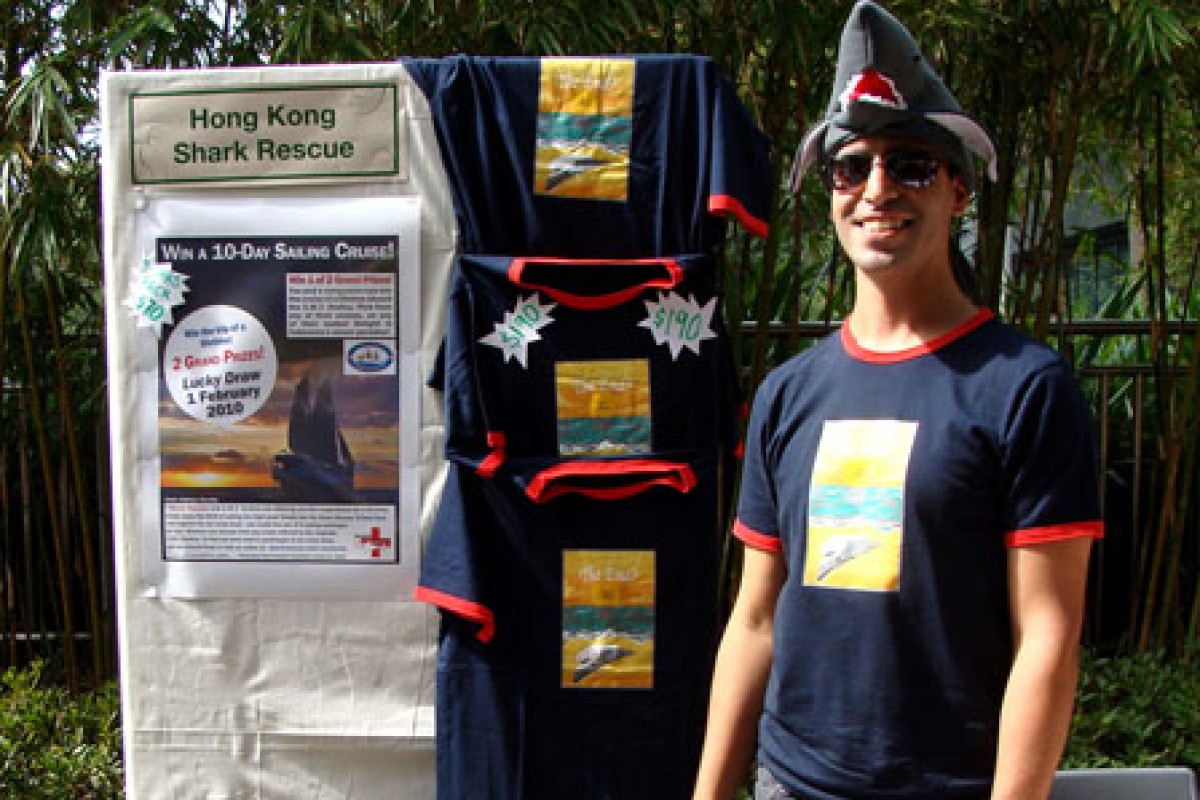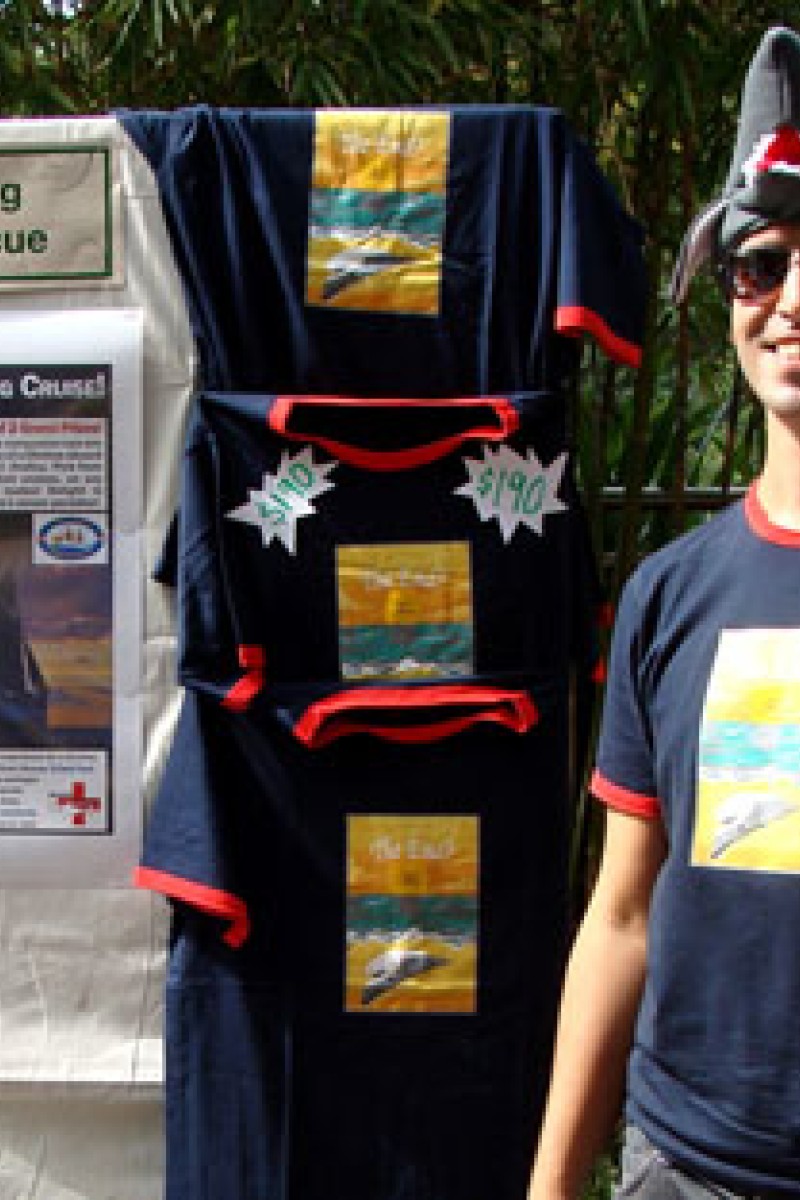
Other than in expensive soups, Hongkongers have little contact with sharks and mostly only learn about them in aquariums and through documentaries.
According to Elfassy, conservation - especially marine conservation - has a low priority in Hong Kong, and sharks are at the bottom of that list. 'I feel like I should do something,' he says.
When Elfassy, head of a media consultancy, started to look into the issue, he discovered that some 100 million sharks are killed every year for their fins, meat, oil and teeth. Meanwhile, some breeds of shark take up to 20 years to reach sexual maturity, producing few offspring, unlike other fish that lay hundreds or thousands of eggs.
'A little simple maths can tell you how quickly the shark population is collapsing, and it has upset the ocean's balance,' he warns.
The main problem, Elfassy says, is that sharks are perceived as dangerous killers, so people do not think about protecting them. But he is quick to point out that, in fact, very few sharks are killers.
'Yes, the movies are scary,' he says. 'But the fact is that most sharks cannot attack humans. Their mouths are too small. Take whale sharks, the world's largest fish, for example, they don't eat more than microscopic plankton.'
Contrary to popular belief, few sharks are dangerous to humans. Of more than 360 species, only three - white, tiger, and bull sharks - are responsible for fatal and unprovoked attacks on humans. According to a study by the University of Florida, the three species have carried out only 117 fatal and unprovoked attacks on humans over the past 400 years.
Compared with the huge numbers of sharks that die at human hands - and very cruelly - this is an almost insignificant number. Most sharks are killed for their fins, especially in Asia. Fishermen catch the sharks, fin them, and then dump the finless bodies back into the sea. Without their fins, the sharks sink to the bottom of the ocean. They suffocate or are eaten alive by predators. Elfassy describes this as 'shameful'.
Hong Kong is a the major player in the shark fin trade, with a 2007 report finding that more than 55 per cent of the shark fin trade passes through the city. 'Hong Kong is a big consumer, but an even bigger re-exporter,' Elfassy says.
'Trading shark fins makes pretty good, ugly money. Hong Kong's business community is sending boats around the world to kill sharks.'
Elfassy is calling for urgent regulation of the shark fin trade, and Shark Rescue's first project was to send a postcard to Chief Executive Donald Tsang Yum-kuen.
'The Hong Kong government doesn't set policy; it only reacts,' he says. 'If enough people send in postcards, I'm sure the government will take the problem seriously.
'Our goal is to see Hong Kong flip from being one of the ocean's destructors to a leader in marine conservation.'
In the meantime, says Elfassy, Hongkongers can act ahead of the government by not consuming shark fins.
'The more you find out about sharks, the more serious you will realise the problem is. The next step is to tell everybody you know and inspire them,' he says.
'We can all contribute and make a difference. All you have to do is to say 'no' to eating shark.
'When your parents treat you to shark's fin soup, take a bit of courage and say no. Tell them [eating something endangered does not taste good].'
Before realising the extent of the problem, Elfassy ate shark products.
'I've tried shark's fin, the meat, and pills made from shark oil.' Now, he says, he knows there are alternatives.
'Maybe we can have sustainable lobsters rather than unsustainable shark fins,' he suggests.
'Life is too precious to mess up with bad decisions. Eating shark is a bad decision,' says Elfassy, adding that he remains optimistic. 'Hongkongers can learn and society can change for a better tomorrow.'
Elfassy welcomes everyone to join him in rescuing sharks and restoring balance to the word's oceans. To learn more, visit www.sharkrescue.com
<!--//--><![CDATA[// ><!-- PDRTJS_settings_997668 = { "id" : "997668", "unique_id" : "default", "title" : "", "permalink" : "" }; //--><!]]>